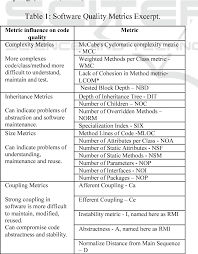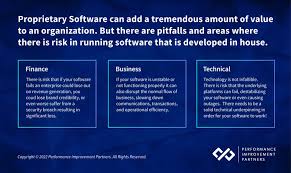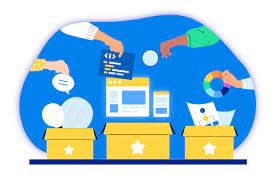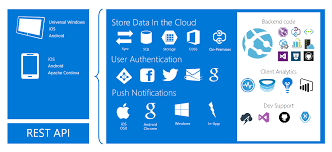Empowering Financial Institutions with Cutting-Edge Solutions: The Role of a Financial Software Development Company
The Role of Financial Software Development Companies in the Modern Business Landscape
In today’s fast-paced and data-driven business environment, the role of financial software development companies has become increasingly crucial. These companies specialize in creating tailored software solutions that streamline financial processes, enhance data security, and improve overall operational efficiency for businesses across various industries.
Customized Solutions for Financial Institutions
Financial software development companies work closely with banks, investment firms, insurance companies, and other financial institutions to develop customized software applications that meet their specific needs. These solutions range from customer relationship management (CRM) systems and accounting software to risk management tools and trading platforms.
Embracing Innovation and Compliance
With the rapid advancements in technology and changing regulatory requirements, financial software developers play a key role in helping businesses stay ahead of the curve. They leverage cutting-edge technologies such as artificial intelligence, blockchain, and machine learning to create innovative solutions that drive growth and ensure compliance with industry standards.
Data Security and Risk Management
One of the top priorities for financial software development companies is ensuring the security of sensitive financial data. They implement robust security measures such as encryption protocols, multi-factor authentication, and regular security audits to protect against cyber threats and data breaches. Additionally, these companies develop risk management tools that help businesses identify and mitigate potential risks proactively.
Enhancing Customer Experience
By developing user-friendly interfaces and intuitive features, financial software developers enhance the overall customer experience for both businesses and their clients. From mobile banking apps to online trading platforms, these solutions empower users with convenient access to financial services while ensuring a seamless user experience.
Driving Business Growth
Financial software development companies play a vital role in driving business growth by enabling organizations to optimize their operations, make informed decisions based on real-time data insights, and adapt to market trends quickly. By partnering with these specialized firms, businesses can gain a competitive edge in today’s dynamic marketplace.
Essential Tips for Success in Financial Software Development: Ensuring Compliance, Security, and User Satisfaction
- 1. Stay updated on the latest financial regulations to ensure compliance in your software.
- 2. Implement strong security measures to protect sensitive financial data.
- 3. Prioritize user experience to make your software intuitive and easy to use for clients.
- 4. Conduct thorough testing to ensure the accuracy and reliability of your financial software.
- 5. Develop scalable solutions that can accommodate growth and changing market demands.
- 6. Foster partnerships with financial institutions to enhance credibility and expand your reach.
- 7. Provide regular updates and support services to address any issues or improve functionality.
- 8. Invest in ongoing training for your development team to keep their skills sharp and up-to-date.
1. Stay updated on the latest financial regulations to ensure compliance in your software.
Staying updated on the latest financial regulations is essential for a financial software development company to ensure compliance in the software they create. By keeping abreast of regulatory changes and requirements, developers can incorporate necessary features and security measures into their software solutions to align with industry standards and mitigate potential risks for their clients. This proactive approach not only demonstrates a commitment to regulatory compliance but also helps build trust with financial institutions and businesses relying on their software for efficient and secure operations.
2. Implement strong security measures to protect sensitive financial data.
Implementing strong security measures is paramount for any financial software development company to safeguard sensitive financial data. By incorporating encryption protocols, multi-factor authentication, and regular security audits, these companies can mitigate the risk of cyber threats and data breaches. Prioritizing data security not only ensures compliance with industry regulations but also builds trust with clients and enhances the overall reputation of the company in the competitive financial technology landscape.
3. Prioritize user experience to make your software intuitive and easy to use for clients.
To enhance the effectiveness of your financial software development company, prioritize user experience to ensure that your software is intuitive and easy to use for clients. By focusing on creating a seamless and user-friendly interface, you can improve client satisfaction, increase adoption rates, and ultimately drive the success of your software solutions in the competitive financial industry. Investing in a user-centric design approach will not only make your software more appealing to clients but also contribute to building long-lasting relationships based on trust and efficiency.
4. Conduct thorough testing to ensure the accuracy and reliability of your financial software.
To ensure the accuracy and reliability of your financial software, it is essential to conduct thorough testing. Testing helps identify and rectify any potential errors or bugs in the software that could impact its performance. By rigorously testing the software, you can ensure that it functions as intended, provides accurate financial data, and operates reliably under various conditions. This step is crucial in maintaining the integrity of your financial systems and instilling confidence in both your team and clients regarding the software’s capabilities.
5. Develop scalable solutions that can accommodate growth and changing market demands.
To thrive in the ever-evolving financial landscape, it is imperative for a financial software development company to prioritize the development of scalable solutions that can adapt to growth and changing market demands. By creating software that can easily expand and evolve alongside a client’s business, these companies ensure long-term success and competitiveness. Scalable solutions not only accommodate increasing data volumes and user demands but also provide flexibility to integrate new features and technologies as needed, enabling businesses to stay agile and responsive in a dynamic market environment.
6. Foster partnerships with financial institutions to enhance credibility and expand your reach.
To enhance credibility and broaden their reach, financial software development companies should prioritize fostering partnerships with financial institutions. By collaborating with banks, investment firms, and other financial entities, these companies can gain valuable insights into industry trends, regulatory requirements, and customer needs. Establishing strong partnerships not only enhances credibility but also opens up new opportunities for growth and innovation. Through strategic alliances with financial institutions, software developers can access a larger client base, build trust within the industry, and develop tailored solutions that address specific market demands effectively.
7. Provide regular updates and support services to address any issues or improve functionality.
To ensure the optimal performance of financial software solutions, it is essential for a financial software development company to provide regular updates and support services. By offering timely updates, the company can address any issues, enhance security measures, and introduce new features to improve functionality based on user feedback. Additionally, ongoing support services play a crucial role in assisting clients with technical issues, troubleshooting, and ensuring that the software continues to meet their evolving needs effectively. This commitment to continuous improvement and customer satisfaction helps establish trust and long-term partnerships with clients in the financial industry.
8. Invest in ongoing training for your development team to keep their skills sharp and up-to-date.
Investing in ongoing training for your development team is crucial for a financial software development company. By keeping their skills sharp and up-to-date, you ensure that your team stays abreast of the latest technologies, trends, and best practices in the industry. Continuous training not only enhances the expertise of your developers but also boosts their motivation and productivity, leading to the creation of innovative and high-quality software solutions that meet the evolving needs of your clients.












